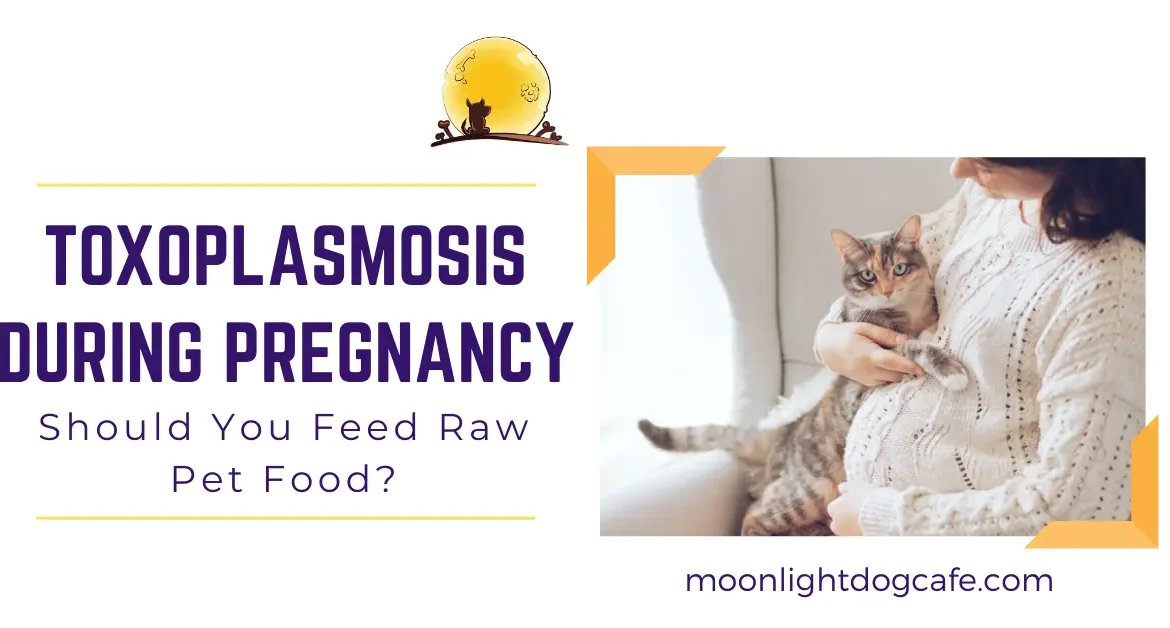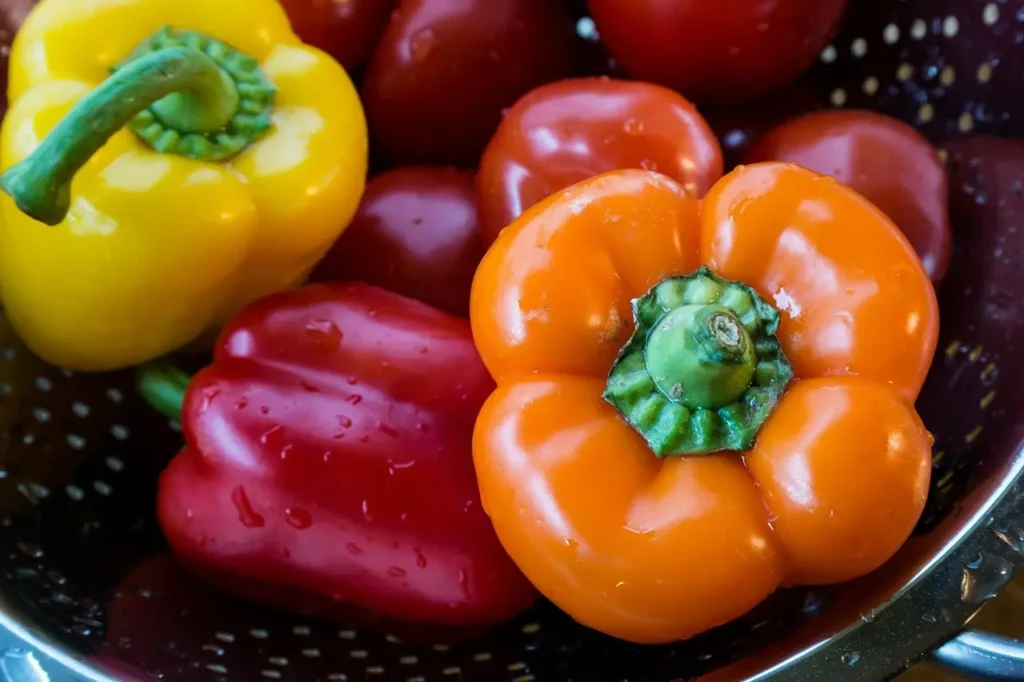
Toxoplasmosis During Pregnancy: Safe Steps For Cat Owners & Raw Pet Food Feeders
Understanding the Risks: Toxoplasmosis Concerns During Pregnancy
Recently, we’ve had questions about the fear of getting toxoplasmosis during pregnancy from a cat or from raw pet food. Typical questions we receive are:
- “We are pregnant and have heard that we could contract toxoplasmosis/ listeria from raw dog food.” Or alternatively,
- “We are worried about the risk of exposure to toxoplasmosis as we feed freeze-dried dog/ cat treats.”
- How common is it to get toxoplasmosis during pregnancy from your pet?
- We’ve heard toxoplasmosis during pregnancy is bad. What do I do if I have a cat or feed raw dog food?
First of all, congratulations on being pregnant (or maybe you are feeling too sick to want to be congratulated). Whatever, the case we will get right to the reason you are here.
Below are considerations so you can make a decision based on information not fear. These considerations cobble together different research papers, CDC, FDA info and holistic vet opinions.
Quick answers: Can I get toxoplasmosis from my cat or from raw pet food?
Short version:
Cats: Possible. Especially for outdoor cats. Cats can shed Toxoplasma gondii oocysts in feces- but only for a short time after being infected. Avoid cleaning litter while pregnant to greatly reduce risk.
Raw pet food: Possible. Raw meat (for pets or humans) can contain T. gondii. Handling raw pet food increases exposure risk the same way handling raw meat for the household does. Follow strict food-safety steps. If pets fed raw food, avoid cleaning cat poop.
Most common sources: For pregnant people, undercooked meat and unwashed produce are the most frequent causes — more common than direct contact with a healthy indoor cat.
What is toxoplasmosis?
“Toxoplasmosis is an infection caused by a single-celled parasite called Toxoplasma gondii. The Toxoplasma parasite can persist for long periods of time in the bodies of humans (and other animals), possibly even for a lifetime.”1 Authorities recommend prevention steps for anyone pregnant or planning pregnancy.
Toxoplasmosis Explained: How It Spreads
Main transmission routes relevant to pet owners and pregnant people:
- Eating undercooked or raw meat (pork, lamb, venison are classic risks). This is a top source.
- Contaminated produce / unpasteurized milk / untreated water. Soil on unwashed vegetables can carry oocysts.
- Cat feces: According to the CDC, the definitive transmission through pets is through cat feces, when they are outdoor pets and eat an infected animal such as a rodent or bird. (Usually up to ~2 weeks after infection). Oocysts require at least 24 hours in the environment to sporulate (become infectious), so frequent litter-box cleaning reduces risk.
- Dogs: dogs do not act as definitive hosts (they do not shed the infectious oocysts like cats), and direct dog-to-human transmission via toxoplasma is not a major route. Infection risk from dogs is primarily through handling contaminated raw meat or contact with contaminated soil.
Bottom line: most pregnant people who get toxoplasmosis acquire it from food (undercooked meat) or contaminated soil/produce, not from affectionate contact with their pet.

Risk of Toxoplasmosis on Pregnancy
“If you were infected with Toxoplasma before becoming pregnant your unborn child is protected by your immunity.”2 Chances are better if you weren’t infected up to 3 months before conception.3
Transmission to your unborn child happens when you are newly infected.
Note that cats only shed T. gondii for a short time. “It takes a minimum of 24 hours for T. gondii oocysts in cat feces to sporulate and become infective, frequent removal of feces from the litter box, while wearing gloves and washing hands afterward, minimizes the possibility of infection.”4
- Kittens and immune suppressed cats eg. with FIV or FeLV are more likely to shed the parasite than adult cats.4
- Toxoplasmosis can cause serious illness/ disability in the child later in life.
Top 5 Tips to Prevent Toxoplasmosis & Listeria from Pet Food During Pregnancy
Here are our top 5 considerations to avoid contracting toxoplasmosis/ listeria from your pet when you are pregnant. These considerations are based on research and also, frankly a bit of common sense.
- If you are having a high-risk pregnancy or are immune compromised then feeding raw pet food may not be appropriate.
- Having said #1, we can attest to numerous pregnant customers who fed raw dog food without any issues.
- Their decisions were made based on their research that showed their baby was not at risk. See reference (2) from CDC for more context.
- For cat owners, the pregnant person should STOP cleaning the cat’s litter. How do you get toxoplasmosis from cats?
- It is highly unlikely to get toxoplasmosis from your dog unless you are somehow ingesting the raw meat diet also.
- It is more likely to get toxoplasmosis if you are eating uncooked meat or not washing your vegetables/ fruits.
- We’ve not seen any research that indicates that dogs shed toxoplasmosis even when they ingest any contaminated food.
- Although the CDC does not recommend feeding raw cat food, no mention is made for raw dog food.2
- “Freezing meat in domestic freezers for 24 hours generally renders T. gondii nonviable.”5
- Commercial raw dog food tend to be frozen longer and at lower temperatures.
- Some research indicates that listeria in beef may survive freezing.
- You can contract listeria through similar mechanisms as toxoplasmosis.
- Listeria is a soil/ water- borne bacteria and is likely from eating uncooked meat or not washing your vegetables/ fruits.
Why You Should Also Be Cautious with Pet Kibble to Prevent Disease Transmission
- There used to be more recalls of pet kibble for listeria, salmonella & e coli. However, with the advent of raw pet food, the FDA seems to be disregarding these issues in kibble.6 See here.
- Most of the testing seems to be of raw pet food brands that are homemade or not reputable. Thus, we are seeing increases in the focus on raw dog food as opposed to dog kibble.
- It is probably more likely to get listeria/ salmonella from kibble because owners do not wash their hands after touching it. This is because most pet owners assume incorrectly that as kibble was cooked it protects them from listeria, salmonella or e coli. Contamination typically happens in the kibble manufacturing process after cooking. See here for information on kibble manufacturing.
- However, they persist in kibble just as well. Common sense forces people to wash their hand when they touch raw meat diets for dogs or cats.
See research warning here.
How to Minimize Exposure to Toxoplasmosis, Listeria, & Salmonella When Handling Pet Food

- The normal suggestions from the FDA still prevail. They usually revolve around cooking your food thoroughly, washing your hand, washing your pet’s bowl thoroughly.
- The latter suggestions are already things that raw pet food feeders already do.
- Wash your hands. Regardless of whether your pet is on raw meat diet or kibble, wash your hands if you dish pet food.
- With any meat-based pet treat or pet food, whether freeze-dried raw or cooked, wash your hands well.
- Wash produce. Rinse raw fruits and vegetables for your consumption or your dog’s consumption.
- Get a partner to clean cat litter. Alternatively, find a really good friend if your partner isn’t available especially for cat litter.
- Use oregano oil for disinfecting surfaces and bowls if you can stomach the smell.
Bottom line — keep your cat, reduce risk with commonsense steps
You do not need to get rid of your cat. Most indoor cats pose very low risk when you follow simple precautions: don’t clean the litter box, use common raw meat handling hygiene, wash hands, and cook meat thoroughly. Those simple actions protect you and your baby without dramatic lifestyle changes.
References
- CDC Parasites – Toxoplasmosis (Toxoplasma infection) https://www.cdc.gov/parasites/toxoplasmosis/gen_info/faqs.html
- CDC Toxoplasmosis & Pregnancy https://www.cdc.gov/parasites/toxoplasmosis/gen_info/pregnant.html
- Toxoplasmosis and pregnancy by Shahnaz Akhtar Chaudhry, Nanette Gad and Gideon Koren. Canadian Family Physician April 2014, 60 (4) 334-336; http://www.cfp.ca/content/60/4/334
- Toxoplasmosis in Cats https://www.vet.cornell.edu/departments-centers-and-institutes/cornell-feline-health-center/health-information/feline-health-topics/toxoplasmosis-cats
- Swine Toxoplasmosis J.P. Dubey, USDA, ARS, Beltsville, Maryland. Veterinary Division – Animal Health Programs https://www.ncagr.gov/vet/FactSheets/Toxoplasmosis.htm
- How Long Has It Been Since We’ve Seen a Kibble Recall? https://truthaboutpetfood.com/how-long-has-it-been-since-weve-seen-a-kibble-recall/


